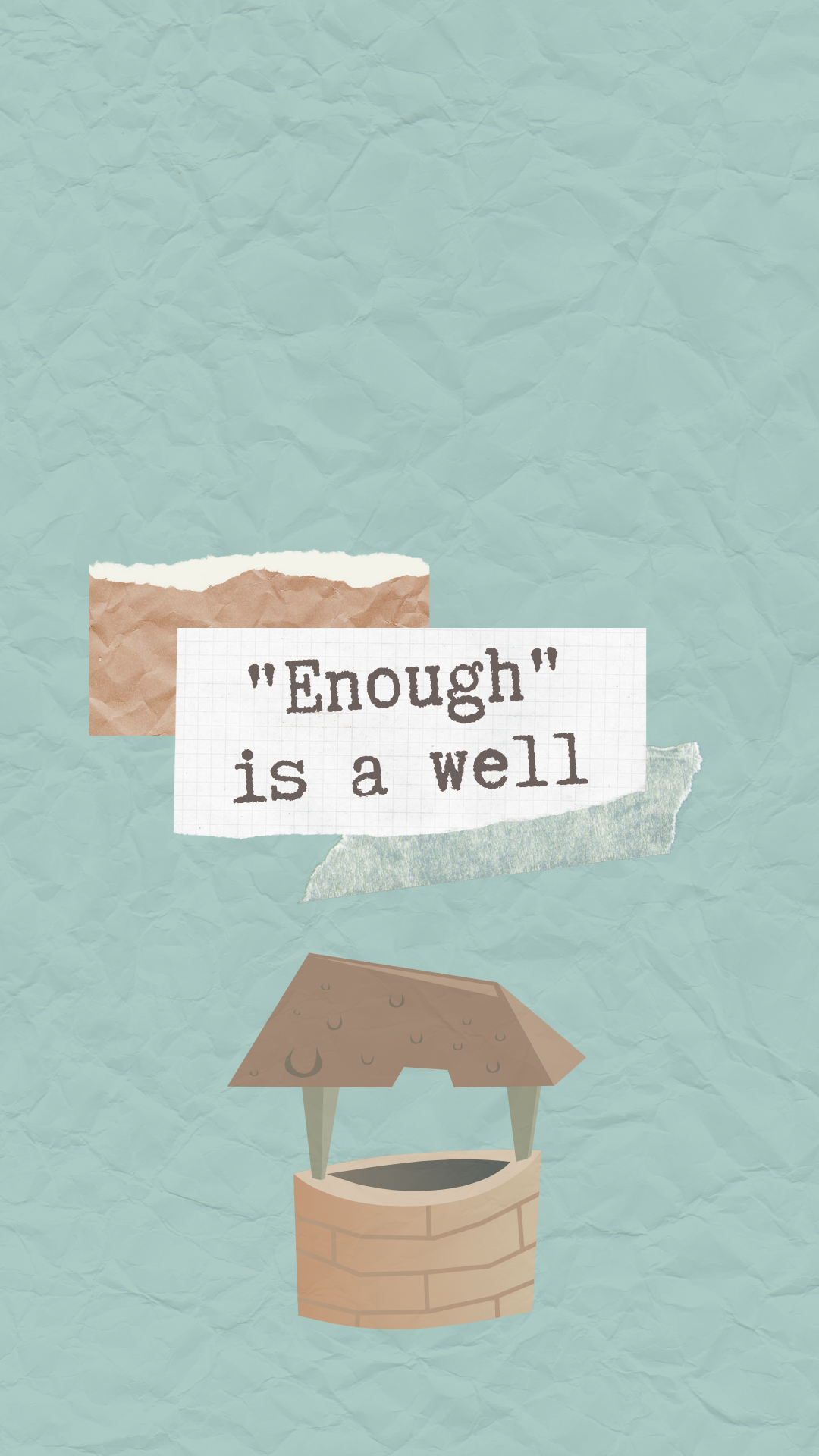Well Enough
I think a lot of eating disorders go undiagnosed because the untrained eye is expecting to see someone who is weak or frail. It has been my experience, however, that folks who’ve struggled with disordered eating are some of the strongest, perseverant people in the world. It is that very tenacity, in fact, which the eating disorder infects and manipulates to maliciously ensnare its host as time goes on.
Because many of us share similar personality traits in the course of our eating disorders, we sometimes have mirrored experiences or themes come up in recovery.* Sometimes even down to the same exact wording. One phrase I commonly hear over and over, across every diagnosis (or non-diagnosis), every age, every gender, and every level of severity is this: “I just can’t help feeling like I’m not sick enough.” This sentiment comes up daily in my work, and it makes my heart wince every time. Because what it tells me is that you don’t feel deserving; you are questioning more than your eating disorder, but your worth as a human in your pursuit of a full life. That’s big. That’s painful. And in some ways, it poses questions which can be unanswerable.
But I’ll tell you this: I have not once met a client I considered undeserving of help. I have never wished someone had come to me sicker, and more in pain. For you, however, the definition of “sick enough” may mean something different. Perhaps you don’t even know what it means, but you are waiting until you feel it.
(but have you found yourself moving the goalpost each time you suspect you have felt it? Is this something you find yourself doing in areas of life, like with professional or personal goals?)
“Enough” is a well. It is bottomless, a chase. Only you can decide when enough is enough.
Next time you question whether you are “sick enough,” I want to challenge you to ask something new in place of those invalidating thoughts:
Are You Well Enough?
Are you content to stop where you are today or is there still hope looming over your horizon? You are the decider here. You are the referee.
For what you envision your life could be, are you well enough?
Are you happy enough?
Are you rested enough?
Are you comfortable enough?
Are you free enough?
Are you trying enough?
Are you at peace enough?
Are you ready enough?
Are you eating enough?
Are you feeling enough?
Are you hopeful enough?
Are you healed enough?
Are you supported enough?
Are you challenged enough?
Are you present enough?
Are you excited enough?
Are you social enough?
Are you adventurous enough?
Are you satisfied enough?
Are you gentle enough?
Are you living enough?
If there was even a tiny, timid, squeak of a voice from somewhere inside you that dares to whisper “no…” Then let’s get back to work. You deserve this.
So I ask you again, by YOUR standards only, are you well enough?
*This is why support groups can be so helpful in recovery. You are not alone, and isolation plays a big role in your experience with recovery. If you would like to hear from more folks like you, please ask your dietitian how they can help you find a good support group. Many are free and offered virtually amidst the COVID-19 pandemic.
About the Author
"Kymber Stephenson is a Registered Dietitian Nutritionist living and working in the Greater Denver area. Her experience began with a love of food which led her to pursue a degree in Culinary Arts from Johnson & Wales University. As her love of science and helping people wove with that initial path, she continued on to a Bachelor of Science in Culinary Nutrition with a dual concentration in clinical dietetics and culinary food science.
Kymber is especially passionate about eating disorder management and prevention. In this vein, she focuses on educating clients about the multi-faceted ways history, marketing, food systems, culture, psychology, and body image affect health and relationships to nutrition, food, and body. She works with clients to truly fall in love with food again, acknowledging not only its nourishing properties, but truly embracing its comforts, tradition, and fun! Working in a client-guided manner with a Health at Every Size approach, she strives to help each unique person reach their idea of peace and satisfaction in their bodies and their overall lives. Kymber's driving philosophy is that all people deserve equitable access to quality food and evidence-based nutrition education, regardless of status or background."



